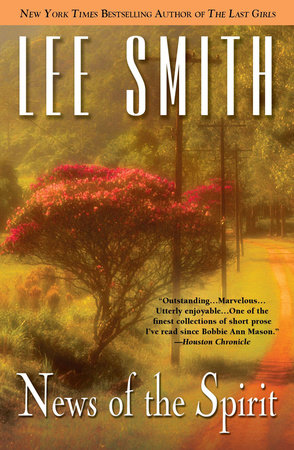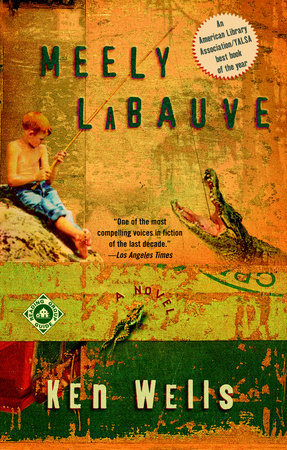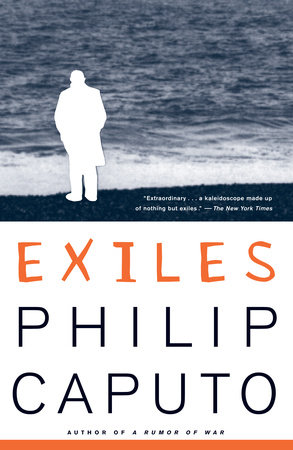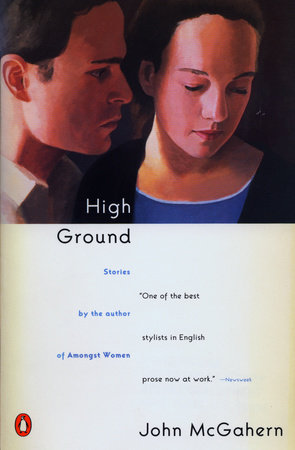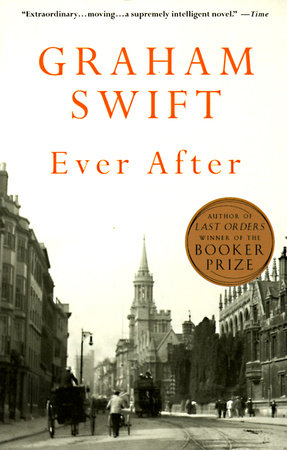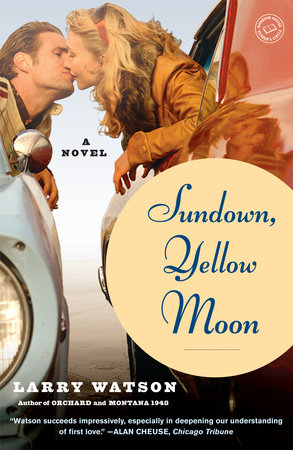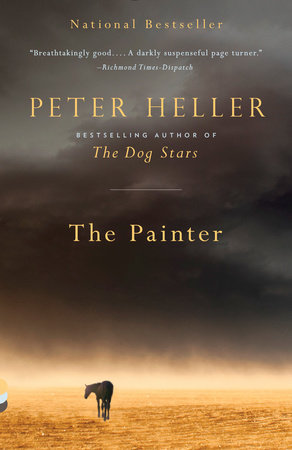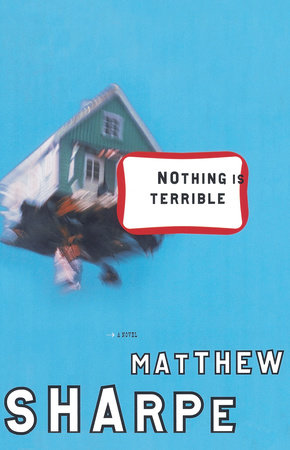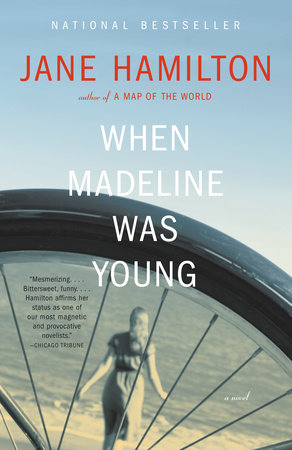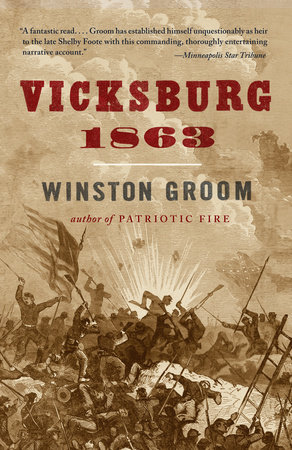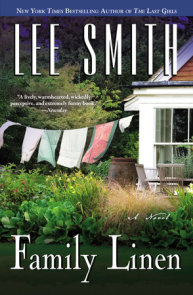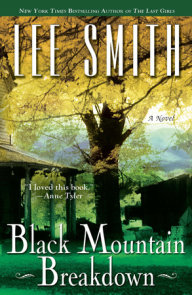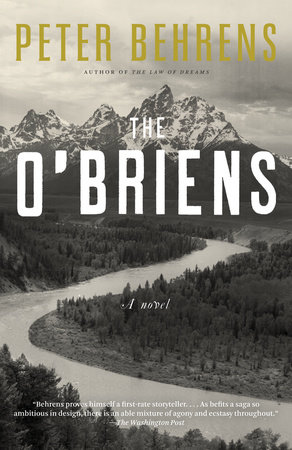Author Q&A
Q: Inevitably, with a collection of stories, reviewers and readers alike cannot resist choosing their favorite. Do you have a favorite among these stories?
LS: If I had to choose, it would be "The Happy Memories Club," in part, because of the incident that inspired this story. I love to do writing groups of all kinds–for literacy programs, for retirement homes, in grade schools. I had gone to a retirement center in southern North Carolina to visit their writing group and I was late. When I arrived, the group was assembled and waiting for me in the cafeteria with their hands folded. "You’re late," announced the leader, a rather severe woman with a lavender beehive, in a terrifyingly strict voice. One of the members began reading a piece when the door opened. And in sauntered this wonderful, elderly woman wearing black toreador pants and gold ballet shoes who was smoking even though smoking was prohibited in the cafeteria. She made a complete circle around the group as we were talking, but nobody made room for her. In fact, everyone completely ignored her! After she circled us in complete silence, defiantly blowing smoke rings as she went, she dropped her cigarette, stomped it out, and left. Afterward, I asked about her and learned that she had been kicked out of the group the week before for writing a piece that everyone in the group found "disturbing." Nobody would tell me what she wrote; they merely said that they wanted only happy memories. I never saw her again, but I made her up and used this incident as the basis for my story. That is often how I work. I have a glimpse of somebody or overhear a conversation in a store and I imagine their lives. For example, I was vacationing with my husband on a tiny island in the Caribbean, and we went to a restaurant much like the one in "The Southern Cross." A beautiful woman was there with three men who looked to me like developers. I thought to myself that she must be French because she was so elegant and sophisticated. Then I spoke to her briefly and her accent was pure eastern Kentucky! From this encounter grew the character of Chanel and her story.
Q: As a writer who has published novels, novellas, and short stories, how
do you decide what form a given story will take?
LS: I usually know the form it will take because I do so much
pre-writing. I spend a great deal of time with a pen and yellow legal pads
writing pages and pages about each character–what their childhood was
like, who their high school boyfriends were, where they shop, and so on.
The characters have a life both before and after the moment they appear in
the story. They have been walking around in my head for so long and I know so much about them that it usually becomes clear to me what form their story will take.
Q: Is there a format you prefer or are more comfortable writing in?
LS: The older I get, I find I prefer writing novels more and more. It
has become harder for me to stick to the classic short story format
because I am really interested in the long haul, the whole scope of a
life. As Hemingway once said, the short story represents just the tip of
the iceberg, and I am more interested in the whole iceberg. There is so
much I have created in the pre-writing phase in terms of the character’s
life that never makes it onto the page in a short story. The classic short
story seems to me to be like a coffin in which the writer is supposed to
fit a whole, complex life. And I find that as I go along, life seems ever
more surprising to me, and it becomes more difficult to fit my characters’
fictional lives in the little box of the short story.
Q: What is the classic form of the short story?
LS: "Blue Wedding" and "The Southern Cross" are the best examples of the classic form in this collection. By the classic form, I mean a story that covers a very short period in a character’s life–one evening or one day or a single incident–which is emblematic of an entire life. And in the
story, something happens that illuminates what came before and after. Some of the other stories like "Live Bottomless," which is really a novella, are more like collapsed novels that cover a longer period of time.
Q: How did you decide what to include in this collection and then how to
organize it?
LS: It was mostly serendipity, but as most writers will tell you, any
group of stories written over a span of time will have thematic resonance.
I know I have found myself dealing with the same issues at different
periods in my life. This is the nature of human existence. Storytelling
and memory and women searching for authentic voices are some of the
important themes in this collection drawn from my own experiences.
Q: Where did the title of this collection come from?
LS: About thirty years ago I was a student in a fiction-writing seminar
led by the wonderful writer George Garrett. A student in the class read a
piece that was an action story and very plot-driven. Technically, it was
very good, but Garrett did not like the story. When asked why, he replied,
"I don’t read any news of the spirit here." I wrote it down in my notebook
thirty years ago and that phrase has been with me ever since. I have been
waiting to use it because that is what storytelling means to me. Whether
it is in writing fiction or talking to a friend over coffee, this is how
we learn something about the human condition, and how we find our
authentic selves over the course of our lives. Each of us has important
stories that need to be told and shared.
Q: In what ways are these pieces autobiographical or not?
LS: I take parts of my own life and use them in my stories. "The Bubba
Stories" is very autobiographical. How Charlene thinks about being a
writer is how I thought about it as a college student. Charlene’s
experience in the creative writing class with the melodramatic story about
the family killed in a Christmas Eve fire is true to my own experience as
an aspiring writer. Her struggle to find an authentic voice is very
autobiographical. There is a lot of an earlier me in "The Bubba Stories"
that I remember fondly. Much in the story is drawn from my imagination,
including Charlene’s family and her creation of Bubba and the affair with
the teacher. Everyday life is seldom as dramatic as this. "Live
Bottomless" is a story it took me thirty years to write. I did take a trip
to Key West with my parents. I was a demonic little child. I was
fascinated with the strippers. We did stay at that hotel with the cast and
crew of "Operation Petticoat," and we were in the movie. But my parents
were not on the verge of divorce, and the interlude with cousin Glenda is
my own creation. As a writer I spin stories from a moment here and a
moment there. Interestingly, I recently received a note from Tony Curtis
who read "Live Bottomless." He wanted to tell me that he really enjoyed
the story and was glad that he came off so well in it. I was really
pleased to receive his note.
Q: What would you tell your readers about your relationship to the
characters of Charlene, Jenny, and Alice, who are all aspiring writers?
LS: They are all me at various ages and stages of my life. But what readers may not always realize is that all the characters are always you and not you. Some characters such as the aspiring writers in these stories may seem more so, but many express parts of my personality that are people I would like to be, but am not. When asked about why she writes, Anne Tyler once said, "I write because I want to have more than one life." I do, too. Writing allows me to try out other possibilities and other parts of my personality that I can’t express in my circumscribed, daily life. I loved writing the character of Chanel because she allowed me to be someone I am not. The very repressed character of Sarah in "The Blue Wedding" expresses my love of counting the silver and creating a beautiful table setting, but this is not something the reader would necessarily know about me. Cousin Glenda is in some ways the most real character in "Live Bottomless," though she is also a completely imagined character. Yet she expresses my own desire for people to "get a grip." Writing allows me to explore many aspects of my own personality, even the not-so-nice side. In this way, writing is very therapeutic for me.
Q: Since your work is so rooted in your personal experiences, and memoirs are very much in vogue these days, would you consider writing a memoir?
LS: No, I wouldn’t. It’s so much more fun to make stuff up. And I would get bored with my own self very fast.
Q: You have been quoted as saying, "For me, stories are as necessary as breathing." What do you mean by this?
LS: I have been writing since I was eight, and I have written fiction my whole life. For me, it allows me to take stock of myself. It is a way of registering the world. I write fiction like other women write in their journals as a way of living an examined life. I write whatever I have on my mind.
Q: Since your work is so personal, is it difficult to read reviews?
LS: No, I read all my reviews. I like to read them because they are often
instructive if the reviewer is addressing, for example, a point of
technique. If lots of reviewers address the same points, it helps me to
think about my work and catch errors. Of course, there is no accounting
for taste. For some reviewers, my work is just not their kind of thing and
that is fine.
Q: You are most often identified as a Southern writer, among other things. How do you feel about these various labels that are applied to you and your work?
LS: I don’t care what I’m called.
Q: What would you like to be called?
LS: Nothing. No, that’s not true. I have never lived anywhere but the
South. My settings and themes are Southern because that is what I know. I
also write specifically about the Appalachian South and have attempted,
not so much in this collection but in other works, to record the history,
dialect, and folklore of Appalachia. It is important, I think, to record
these regional distinctions because of the homogenization that is going on
in American culture. One place is becoming much like every other place. I
am proud of my work in recording these regional distinctions and in
creating a record of the values, mores, and manners of the Appalachian
South. I am happy to be called a regional writer. Everybody’s got to be
from somewhere, which is reflected in their work. But I do think that my
work can be read by people everywhere. I hope my stories have an appeal that transcends region.
Q: What writers or works have influenced you?
LS: William Faulkner, Flannery O’Connor, Eudora Welty, and Virginia Woolf are some of my favorite writers. Welty and O’Connor have had the most influence in terms of subject matter. Like them, I focus on lives that are not extraordinary and characters who live in small towns. The action
in my stories comes from within. Woolf and Faulkner have influenced my work in terms of creating a distinctive style. You’re given your material by birth–mine is Southern material–and the way to make it new and fresh is to approach it from a new perspective stylistically.
Q: How do you work? Is it a difficult process for you?
LS: For me, it is mostly pleasure. The really exciting part–the most
exciting thing I can think to do really–is making it all up in an
incredible rush in the first few drafts. I have already done so much work
in the pre-writing stage in terms of creating a complete biographical
sketch (there is so much that never makes it onto the page) that once I
let a character such as Chanel start speaking, there is no shutting her
up. My problem is that I think I write too much. For people who write
fiction with ease, the real problem is making sure what you are writing is
worth saying. What is very important is the quality of the idea. The final
stage of revising and fine-tuning is more difficult for me. Putting in
transitions and dealing with all of the piddly little details is like
building a house. This is where writing becomes more like an everyday job.
While fiction is a joy for me to write, writing nonfiction is like pulling
teeth. When I worked as a journalist, I would often get in trouble for
making up the news and writing opinion and not fact. I find it much more
difficult to be bound to a set of facts, to not have the freedom of
fiction and imagination.
Q: Class tensions and pretensions run throughout every work in this
collection. Why is this so?
LS: A great taboo subject in America is class. We pretend it does not
exist here, but of course it does. I have lived in every class and think
it is critical to talk about the different manners, mores, and values.
Class is a worthy topic of observance. I loved reading Jane Austen and the
Bröntes. And much of what these English women novelists talk about is
class. That’s what they write about. And we need to think about the cost
of upward mobility in this country. So often to achieve upward mobility,
you have to cut your roots. But then you are adrift.
Q: What do you most want your readers to take away with them from these stories?
LS: This collection is all about storytelling, time, memory, and women
trying to live authentic lives, stories about finding your true voice and
telling and sharing your stories, because everybody’s stories are
valuable. The stories in our own lives give meaning and shape to our
lives. I would like readers to understand how important they are and how
important their stories are. It is so crucial for us to listen to each
other and open ourselves to the healing experience of stories. It has
always been a great pleasure for me to write and to read. To read is to
have new worlds open up to us and remove us from our own context. I hope I can do this for my readers. But beyond the pleasure writing gives me, I try to create characters who are somehow different from the norm. The illiterate, the mentally ill, the very old, and the very young–all these are voices that are not normally heard or understood. The real value of fiction is in giving voice to
people who are not always heard. I have become very interested in Hispanic families throughout the South–Southerners whose voices, by and large, are not being heard yet. The character of Johnny in "News of the Spirit" may be writing a story on the walls of the barn that is very different,but it is a story that is valuable and needs to be heard. By the end of the story, Paula comes to accept her brother and recognize the value of his story. Her boyfriend, Drew, was a very interesting character for me because he was able to accept Paula and value the parts of her story that she did not. In doing so, he helped her to accept her family and her past and hold onto the things that made her unique.
Q: Will we be hearing from any of these characters again?
LS: No, probably not. I never want to go back. I understand the
